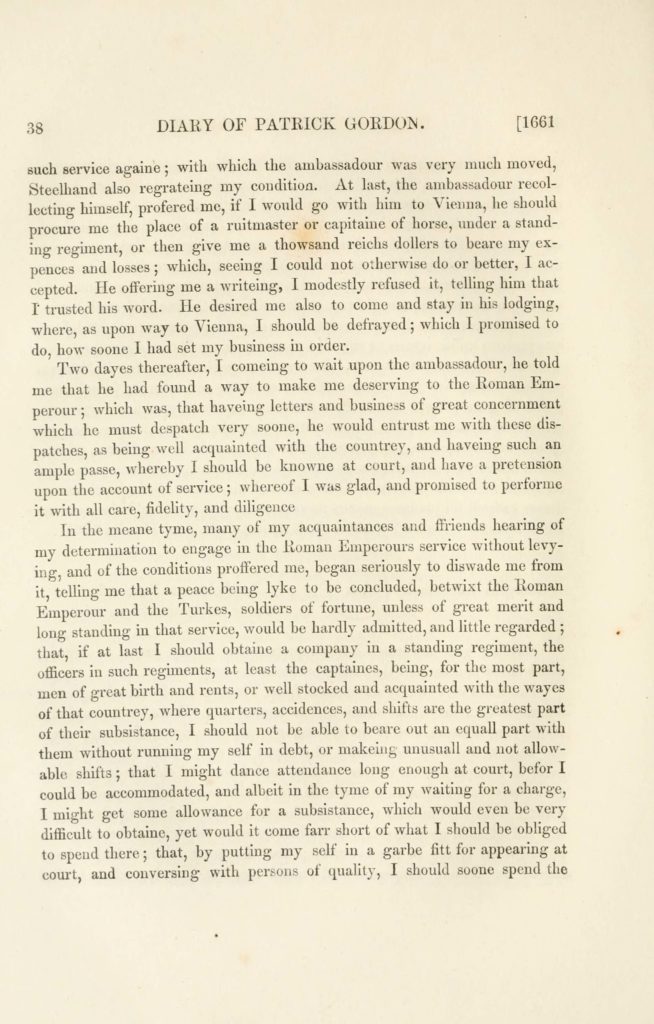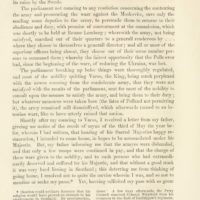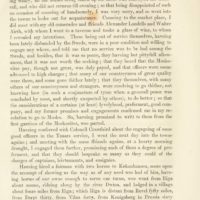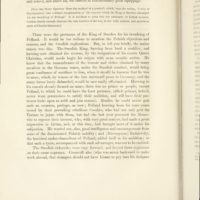
Related
![1667] DIARY OF PATRICK GORDON. lOl with their officers, from which 1 diswaded them, that the Emperour](https://cdn2.picryl.com/thumbnail/1699/12/31/1667-diary-of-patrick-gordon-lol-with-their-officers-from-which-1-diswaded-b66781-200.jpeg)
1667] DIARY OF PATRICK GORDON. lOl with their officers, from which 1 diswaded them, that the Emperour

172 DIARY OF PATRICK GORDON. [1690 his name was not in it, it being sent to him to be dehvered pubhkely

34 DIARY OF PATRICK GORDON. [1661 hired it ; the lodging or house belonging to that family

42 DIARY OF PATRICK GORDON. [1661 misfortune
![1696] DIARY OF PATRICK GORDON. 185 for a just cause is rewarded](https://cdn2.picryl.com/thumbnail/1699/12/31/1696-diary-of-patrick-gordon-185-for-a-just-cause-is-rewarded-d5c23a-200.jpeg)
1696] DIARY OF PATRICK GORDON. 185 for a just cause is rewarded
![1661] DIARY OF PATRICK GORDON. 33 sence of the King](https://cdn2.picryl.com/thumbnail/1699/12/31/1661-diary-of-patrick-gordon-33-sence-of-the-king-a87f39-200.jpeg)
1661] DIARY OF PATRICK GORDON. 33 sence of the King

36 DIARY OF PATRICK GORDON. [1661 I should have had by my officers, who must have furnished

20 DIARY OF PATRICK GORDON. [1655 men with a gallant traine of artillery. It was a most delighttull
![1661] DIARY OF PATRICK GORDON. 39 small stock I had ; as for the 1000 reichs dollers promised me](https://cdn2.picryl.com/thumbnail/1699/12/31/1661-diary-of-patrick-gordon-39-small-stock-i-had-as-for-the-1000-reichs-dollers-a537cd-200.jpeg)
1661] DIARY OF PATRICK GORDON. 39 small stock I had ; as for the 1000 reichs dollers promised me
38 DIARY OF PATRICK GORDOl^. [1661 such service againe ; with which the ambassadour was very much moved,
Summary
Passages from the diary of General Patrick Gordon of Auchleuchries : A.D. 1635-A.D. 1699"
38 DIARY OF PATRICK GORDOl^. [1661
such service againe ; with which the ambassadour was very much moved,
Steelhand also regrateing my condition. At last, the ambassadour recol-
lecting himself, profered me, if I would go with him to Vienna, he should
procure me the place of a ruitmaster or capitaine of horse, under a stand-
ing regunent or then give me a thowsand reichs dollers to beare my ex-
pences and losses ; which, seeing I could not otherwise do or better, I ac-
cepted. He offering me a writeing, I modestly refused it, telling him that
I trusted his word. He desired me also to come and stay in his lodging,
where, as upon way to Vienna, I should be defrayed ; which I promised to
do, how soone I had set my business in order.
Two dayes thereafter, I comeing to wait upon the ambassadour, he told
me that he had found a way to make me deservmg to the Roman Em-
perour ; which was, that haveing letters and business of great concernment
which he must despatch very soone, he would entrust me with these dis-
patches, as being well acquainted with the countrey, and haveing such an
ample passe, whereby I should be kuowne at court, and have a pretension
upon the account of service ; whereof I was glad, and promised to performe
it with all care, fidelity, and diligence
In the meane tyme, many of my acquaintances and ffriends hearing of
my determination to engage in the Roman Emperours service without levy-
ing, and of the conditions proffered me, began seriously to diswade me from
it telling me that a peace being lyke to be concluded, betwixt the Roman
Emperour and the Turkes, soldiers of fortune, unless of great merit and
long standing in that service, would be hardly admitted, and little regarded ;
that if at last I should obtaine a company in a standing regiment, the
officers in such regiments, at least the captaines, being, for the most part,
men of great birth and rents, or well stocked and acquainted with the wayes
of that countrey, where quarters, accidences, and shifts are the greatest part
of their subsistance, I should not be able to beare out an equall part with
them without running my self in debt, or makehig unusuall and not allow-
able shifts ; that I might dance attendance long enough at court, befor I
could be accommodated, and albeit in the tyme of my waiting for a chai-ge,
I might get some allowance for a subsistance, which would even be very
difficult to obtaine, yet would it come farr short of what I should be obliged
to spend there ; that, by putting my self in a garbe fitt for appearing at
com-t, and conversing with persons of quality, I should soone spend the
Gordon was brought up and remained a lifelong Roman Catholic, at a time when the Church was being persecuted in Scotland. At age of fifteen, he entered the Jesuit college at Braunsberg, East Prussia, then part of Poland. In 1661, after many years experiences as a soldier of fortune, he joined the Russian army under Tsar Aleksei I, and in 1665 was sent on a special mission to England. After his return, he distinguished himself in several wars against the Turks and Tatars in southern Russia. In recognition of his service he was promoted to major-general in 1678, was appointed to the high command at Kiev in 1679, and in 1683 was made lieutenant-general. In 1687 and 1689 he took part in expeditions against the Tatars in the Crimea, being made a full general. Later in 1689, a revolution broke out in Moscow, and with the troops under his command, Gordon virtually decided events in favor of Peter the Great against the Regent, Tsarevna Sophia Alekseyevna. Consequently, he was for the remainder of his life in high favor with the Tsar, who confided to him the command of his capital during his absence from Russia. In 1696, Gordon's design of a "moveable rampart" played a key role in helping the Russians take Azov. One of Gordon's convinced the Tsars to establish the first Roman Catholic church and school in Muscovy, of which he remained the main benefactor and headed the Catholic community in Russia until his death. For his services his second son James, brigadier of the Russian army, was created Count of the Holy Roman Empire in 1701. At the end of his life the Tsar, who had visited Gordon frequently during his illness, was with him when he died, and with his own hands closed his eyes. General Gordon left behind him a uniquely detailed diary of his life and times, written in English. This is preserved in manuscript in the Russian State Military Archive in Moscow. Passages from the Diary of General Patrick Gordon of Auchleuchries (1635–1699) was printed, under the editorship of Joseph Robertson, for the Spalding Club, at Aberdeen, Scotland, 1859.
